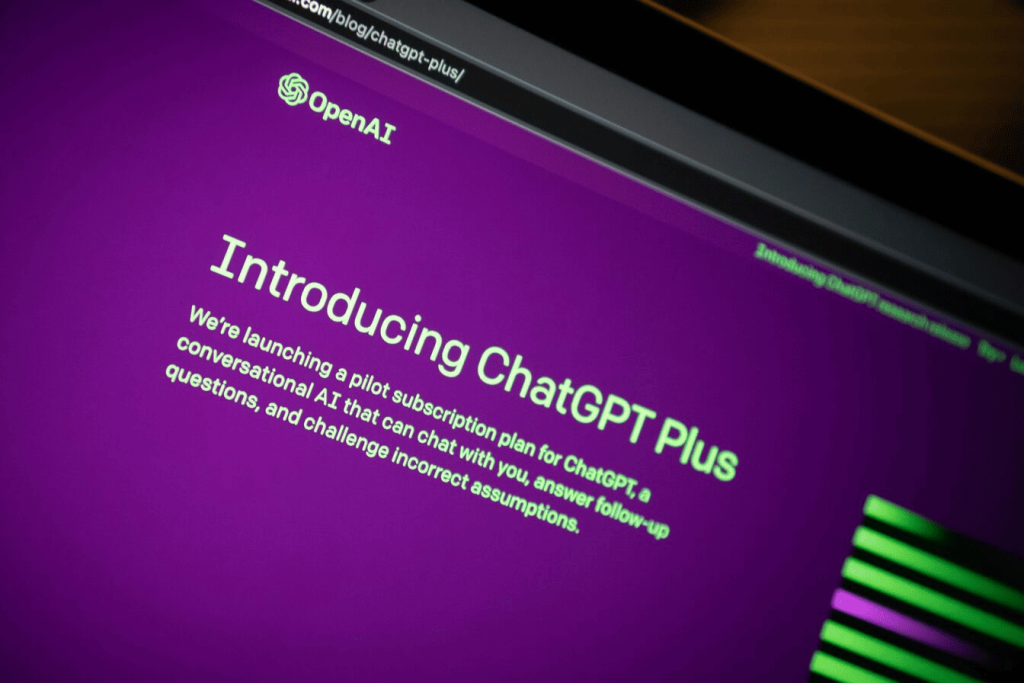Executing a GPT-4 SEO content marketing campaign can skyrocket your search engine rankings. However, you need to know the best practices and strategies to increase your odds of success. We’ll share the strategies you need to follow for the best results.
Furthermore, we’ll provide an overview of the benefits of AI tools for Search Engine Optimization. This will help you understand where their value lies and some of their limitations. Additionally, we’ll share an alternative to GPT-4 for SEO content marketing. This will give you more options to find the AI tool that meets your requirements.
Keep reading for ideas on how to use the best AI writing tools for your SEO content marketing strategies.
Nov 20, 2024 • 14 min read
GPT-4 SEO Content Marketing: What Is It?
GPT-4 SEO content marketing refers to the practice of leveraging OpenAI’s advanced language model to create optimized content for search engines like Google. Therefore, marketers can produce blog posts, articles, and web copy that align with SEO best practices.
These include keyword integration, topic relevance, and content structure designed to improve search rankings. Additionally, GPT-4 can help produce engaging content at scale, thereby reducing manual effort.
However, you can also optimize your search engine with other AI tools like Smodin. For instance, you can use the AI Article Writer to quickly generate more blog posts for your website. And if you’re worried that there’s too much content that sounds like AI, then use Smodin’s AI Paraphrasing Tool to make the content unique.
The Core Pillars of Content SEO
Before we can look at using AI tools for SEO content, we need to understand what’s involved in content optimization. This ensures that you understand the basics and use AI tools accordingly. Here’s a summary of the key concepts:
- Keyword research: The foundation of content SEO is identifying relevant keywords that align with user search intent. Proper keyword research helps you target the phrases your audience is searching for, thereby improving the chances of ranking high on search engine results.
- Quality content creation: High-quality, informative, and engaging content is crucial for SEO. That’s because search engines prioritize content that provides value to readers, meets their search intent, and encourages engagement. Furthermore, unique, and well-researched content that addresses user needs not only ranks higher but also builds authority and trust.
- On-page optimization: On-page SEO focuses on optimizing individual page elements like meta titles, meta descriptions, headers, and images. This is one of the key ranking factors that’s within your control to implement. This includes proper use of keywords, image alt texts, internal linking, and ensuring fast loading times.
- Internal linking: Effective internal linking connects related content throughout your website, thereby helping users and search engines navigate your site. Additionally, internal links distribute page authority across your site. This improves the indexability of pages and guides users to related topics or products.
- Content updates and freshness: Regularly updating your content keeps it relevant and competitive. That’s because search engines favor websites with fresh and up-to-date information that provides value to users. Content refreshes signal to search engines that your site is active, hence it improves the chances of ranking higher.

Can GPT-4 Help With SEO: Top 5 Advantages
Now let’s take a look at the top reasons to use AI tools for improving the effectiveness of your SEO content marketing. You’ll see that it’s possible to rise the ranks of search engine results pages with minimal effort.
1. Increased Efficiency and Speed
AI tools like GPT-4 dramatically enhance the speed and efficiency of content creation for SEO marketing. That’s because they can generate large volumes of high-quality content with maximum speed. This eliminates a lot of the manual effort typically required. Instead of spending hours researching and drafting, you can enter a few awesome ChatGPT prompts.
This allows marketers to focus on higher-level strategy and scaling efforts. Moreover, AI-driven content is designed to match SEO guidelines, thereby making it easier to rank in search engines. This is especially handy for those businesses or websites that have massive content goals without low resources.
2. Enhanced Keyword Optimization
AI tools are highly effective at incorporating the right keywords into SEO content which helps to improve search engine rankings. Furthermore, they can analyze keyword relevance, search intent, and competition. Consequently, this generates content that naturally integrates these keywords without keyword stuffing.
Furthermore, the process ensures that the content remains engaging and informative for readers while also appealing to search engine algorithms. Additionally, AI can adapt to changing trends in keyword usage and always ensure that the most relevant keywords are selected. However, the effectiveness of this depends on the specific AI tool you choose for SEO strategies.
3. Data-Driven Content Creation
AI tools utilize vast datasets to create content based on real-time data and trends. Overall, by analyzing current market conditions, audience behavior, and search engine algorithms, these tools can predict what type of content will perform well. This means there’s no need to manually check trends or stay up to date.
This data-driven approach enables marketers to produce content that is highly relevant and optimized for performance. However, it’s a good idea to use SEO tools to verify that the topic you write is in high demand. You can do this through keyword research strategies. This combined with the best AI copywriting software will lead to a high-quality blog post every time.
4. Consistency and Scalability
Maintaining consistent content production at scale is one of the biggest challenges in SEO content marketing. It can take up a lot of your time or resources, depending on the strategy. Fortunately, AI tools allow marketers to generate consistent, and high-quality content.
With AI, it’s easier to create content calendars, automate updates, and ensure that messaging aligns with your brand voice. This ensures a steady flow of optimized content that helps boost SEO performance over time.
5. Cost Effectiveness
Using AI tools for SEO content marketing can significantly reduce costs associated with content creation. Rather than hiring large teams of writers, editors, and SEO specialists, businesses can leverage AI to handle the bulk of content generation.
These tools produce high-quality and SEO-friendly content quickly, thereby cutting down on labor costs and time spent on revisions. Furthermore, AI’s ability to automate keyword research, trend analysis, and performance tracking minimizes the need for manual input.
Challenges of AI SEO Content Marketing
Using AI tools in the context of SEO is not without its challenges. Overcoming them is essential for ensuring that your efforts to produce high-quality content that’s perfect for SEO aren’t compromised. By the end of this section, you’ll have a good idea of how to make the right preparations.
Lack of Originality
AI tools may generate content that lacks true originality or creativity since they rely on patterns and existing data. Therefore, the output can sometimes feel repetitive or generic. This can hinder a brand’s ability to stand out. This is especially true in highly competitive industries where unique perspectives and authentic storytelling are key to engaging audiences.
However, you can use AI tools as an aid instead of the only content generation mechanism. For instance, you can learn how to write better sentences by looking at the structure of AI-generated content. Then you can inject your own touch to make the content unique.
For example, you can tell a personal anecdote or pick out a relevant quote and showcase your thoughts on why it’s great. Personal touches like these go a long way toward transforming AI content into something that you can be proud to present in front of your target audience.
Inaccuracies in Content
AI-generated content may sometimes include factual inaccuracies or misinterpret complex information. This can be a massive problem in a niche where you need to position your brand as the authority. Therefore, while AI is capable of synthesizing data, it can misunderstand nuances, thereby leading to errors in content.
This necessitates careful human review and editing to ensure the accuracy and reliability of the content. However, you can reduce the amount of manual editing required by picking an accurate AI tool. You’ll need to compare the output of several tools to find one that meets your requirements.
Limited Understanding of Brand Voice
AI tools may struggle to fully grasp and implement a company’s unique brand voice and tone. While they can generate grammatically correct and structured content, the subtle nuances of a brand’s personality or message may not be accurately conveyed.
This can lead to inconsistencies in branding and require additional time for editing. You can somewhat overcome this problem by creating detailed prompts that help the AI model understand your brand voice. Also, some AI tools offer a personalized approach, which means the outputs will be more in line with your brand voice over time.
Over-Dependence on Algorithms
Relying too heavily on AI tools for SEO content can lead to over-optimization. Therefore, AI-driven content may be too focused on algorithms and keywords. This results in content that appeals more to search engines than human readers.
Hence, don’t feel that your AI tools are a work-free way to massive amounts of content. You still need to insert a healthy dose of creativity and oversight to ensure the end result is competitive. Otherwise, you run the risk of your website content being stale and uninteresting.

How To Use ChatGPT for Content Marketing
Now let’s turn our attention to the best practices and methodologies for using ChatGPT to improve your content marketing. Note that these tips are also applicable to other AI tools. In fact, it’s a good idea to compare natural language processing algorithms to see which one offers the best outputs.
Create SEO-Friendly Content
ChatGPT can assist in creating SEO-optimized content by incorporating relevant keywords and structuring articles for search engine performance. Therefore, by guiding the model with specific SEO goals, marketers can ensure their content ranks well on search engines. Here are some tips for what makes content SEO-friendly:
- Keyword optimization: Use AI tools to identify high-ranking keywords relevant to your content. Then you can integrate them naturally into your text, headings, and meta descriptions. This enhances search engine rankings while maintaining readability and relevance for human audiences.
- Content personalization: AI tools can analyze user behavior and preferences to help tailor your content for specific audience segments. This improves engagement and dwell time. Each of these factors search engines consider for rankings, thereby leading to SEO improvements.
- Content structure: An SEO tool with AI capabilities can assist in creating clean, organized content structures. For example, the content optimization of headings, subheadings, and bullet points. This improves readability and enhances your content’s scannability. Ultimately, you’ll help search engines better understand and index your pages.
- Plagiarism detection: Use AI-powered plagiarism checkers to ensure your content is unique. That’s because search engines penalize duplicated content, so originality is essential for maintaining or improving rankings. Furthermore, AI tools can scan and compare your content across the web to flag potential duplicates.
- Meta tag optimization: AI can suggest optimized title tags, meta descriptions, and alt texts for images. These elements are crucial for helping search engines understand your content and increasing your click-through rate (CTR) from search engine results pages.
Develop Long-Form Content like Blog Posts and eBooks
ChatGPT is a decent tool for drafting long-form content such as blog posts, articles, or eBooks. Marketers can outline key points and let the model expand on them, thereby helping to produce in-depth content quickly. AI tools like the free AI Writer and Text Generator help save time on long-form content since you can get thousands of words in just a few moments.
Additionally, AI tools have the ability to refine, edit, and optimize output, thereby supporting content creators through the entire drafting process. For eBooks and detailed guides, ChatGPT helps by structuring chapters, generating key insights, and ensuring the content stays informative and coherent. This significantly reduces the time spent on research and writing.
Repurpose Content
Repurposing content is an effective way to maximize the value of existing content, and ChatGPT makes this process easier. Marketers can feed it blog posts, articles, or reports and ask it to reformat or reframe the information.
For example, a blog post can be transformed into a series of social media posts, email newsletters, or even a video script. ChatGPT ensures that the core message remains consistent while adapting the tone and style to suit the new medium. You can also repurpose long-form content into short blog posts targeting specific keywords.
Enhance Content Editing and Proofreading
AI tools can assist in the content creation process with editing and proofreading. This makes it easier to refine drafts before publication. That’s because it can spot grammatical errors, suggest sentence restructuring, and improve readability by offering alternative phrasing.
The AI Grammar Checker ensures your content looks more professional, which is especially great if you don’t want to spend extra on hiring a proofreader. The hands-off approach allows you to get on with crafting the creative vision for the content.
Improve Your eCommerce SEO With AI Tools
There are a number of strategies you can deploy to boost the performance of your SEO for eCommerce websites. Here are the top tips to consider to get you started:
- Dynamic pricing strategies: AI tools can analyze competitor pricing and customer behavior to optimize your product prices. This data-driven approach can boost competitiveness, attract more clicks, and increase traffic to your eCommerce site.
- SEO through increased engagement: Generate SEO-optimized content such as product descriptions, blogs, and category pages. Automated content allows you to scale quickly while incorporating relevant keywords. Learn how to use an SEO product description generator to increase your conversion rate while optimizing for the search engines.
- Image optimization: Some AI tools can optimize product images by compressing them without sacrificing quality, generating alt texts, and improving load speeds. This enhances user experience and is crucial for SEO since faster-loading websites rank higher in search engine results.
- Structured data markup: You can automatically generate and implement structured data markup for your eCommerce site. This helps search engines better understand and display your product information in rich snippets, thereby enhancing visibility and click-through rates.
- Voice search optimization: AI tools can help optimize your eCommerce site for voice search by analyzing how customers use natural language. That’s because AI identifies relevant conversational keywords and phrases, thereby helping you tailor the content for voice searches.
Help With Keyword Clustering
ChatGPT can aid in keyword clustering, a technique that groups related keywords to optimize content around topic clusters rather than just individual keywords. Therefore, by inputting a list of target keywords, ChatGPT can help organize them into relevant clusters that naturally fit within a content strategy.
This approach improves the content structure and also aligns with modern SEO algorithms that prioritize topic relevance. Additionally, creating content around these clusters can improve search engine rankings by enhancing topical authority.
Is GPT-4 Worth Using for SEO?
GPT-4 is priced reasonably at around $20 per month. However, there’s a lack of pricing options and more features to better match the growing demand for AI tools. For example, there’s no specific tool to help with homework or grade papers. Also, the user interface is rather basic and hasn’t changed much since its inception.
Instead, consider taking a look at the Smodin Pricing Page for an alternative. There are more pricing plans on offer with a richer array of features. This is perfect if you’re looking for added value to boost your AI capabilities for perfecting SEO strategies.

Boost Your SEO Content Marketing With Smodin
ChatGPT4 is a decent choice for SEO content marketing, and you’ll get better results if you follow the tips in this article. For example, you can use AI tools to optimize meta tags and create long-form content quickly.
However, if you feel that your GPT-4 SEO content marketing isn’t going on track, then perhaps it’s time to change the tool you’re using. Other AI tools may provide more features and a better user interface. After all, ChatGPT isn’t the most user-friendly tool on the market.
With that thought in mind, consider taking advantage of Smodin for an all-in-one solution. Check out the Smodin Pricing page for a complete list of plans and the features you’ll receive with each one. The tool offers an optimized user interface and you can try it for free with the freemium plan.
Check out Smodin today to improve your SEO content marketing.
FAQs
How does GPT-4 help with long-tail keyword strategies?
GPT-4 can assist in creating content that targets long-tail keywords by analyzing search patterns and generating content that answers specific queries. This helps your website rank for less competitive keywords that often convert better because they align closely with user intent.
Furthermore, GPT-4’s precision in generating conversational and informative content aids in targeting these focused search queries. However, you may also want to feed the AI tool, specific, long-tail keywords you might be targeting.
Is GPT-4 capable of writing meta descriptions and title tags for SEO?
Yes, GPT-4 can generate optimized meta descriptions and title tags based on content themes and keyword analysis. These are crucial for improving your CTR from search engine results pages.
Furthermore, with clear and engaging meta descriptions and well-optimized titles, GPT-4 ensures that your content stands out. This improves both visibility and user engagement, which are key factors in SEO.
Can GPT-4 help in local SEO content marketing?
Yes, GPT-4 can assist in creating content tailored to local SEO strategies. That’s because they can generate location-specific keywords and topics. Furthermore, it can produce content that caters to local audiences. This includes local landmarks, events, or services, which can improve visibility in regional search results.
Additionally, localized content helps businesses rank higher in geo-targeted searches. This drives more relevant traffic to your site.
Is GPT-4 suitable for creating large volumes of SEO content?
GPT-4 is well-suited for creating large volumes of SEO content quickly and efficiently. It’s able to maintain consistency in quality while adhering to SEO best practices. The tool can achieve this across multiple articles, blog posts, or product descriptions.
Additionally, the scalability helps content marketers meet high demands without sacrificing the SEO value of their content. Hence, the tool is ideal for large-scale content strategies. You can also use Smodin to quickly generate large volumes of SEO content.
Is GPT-4 content original enough to avoid plagiarism penalties?
Yes, GPT-4 generates original content based on inputs rather than copying existing text. However, it’s wise to run the AI-generated content through a plagiarism checker before publishing. This will help you avoid publishing text that will decrease your SEO score due to the duplicate content penalty.
This ensures that all content is unique, thereby maintaining your SEO credibility and avoiding any negative impact from duplicated text.






 AI
Plagiarism Checker
AI
Plagiarism Checker
 AI
Content Detection Remover
AI
Content Detection Remover
